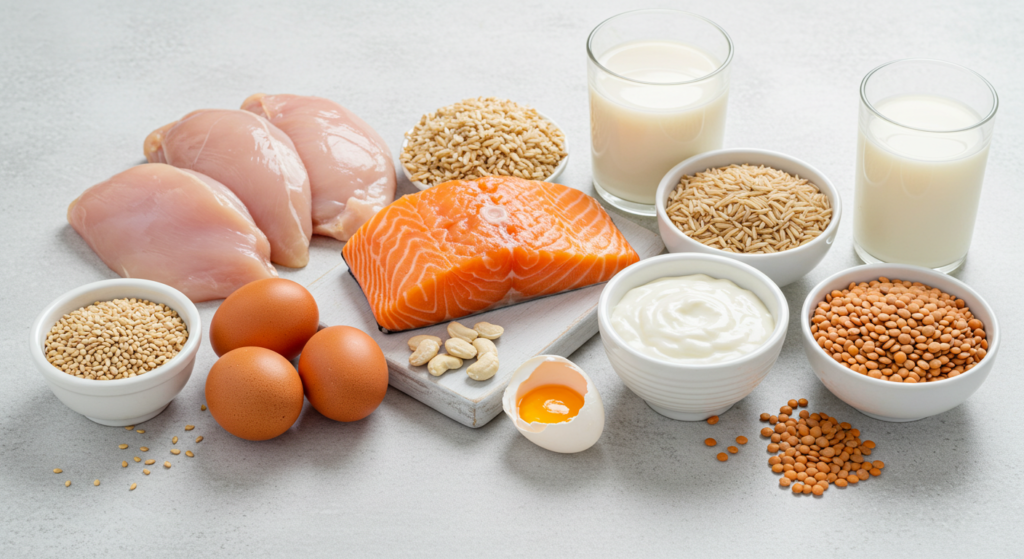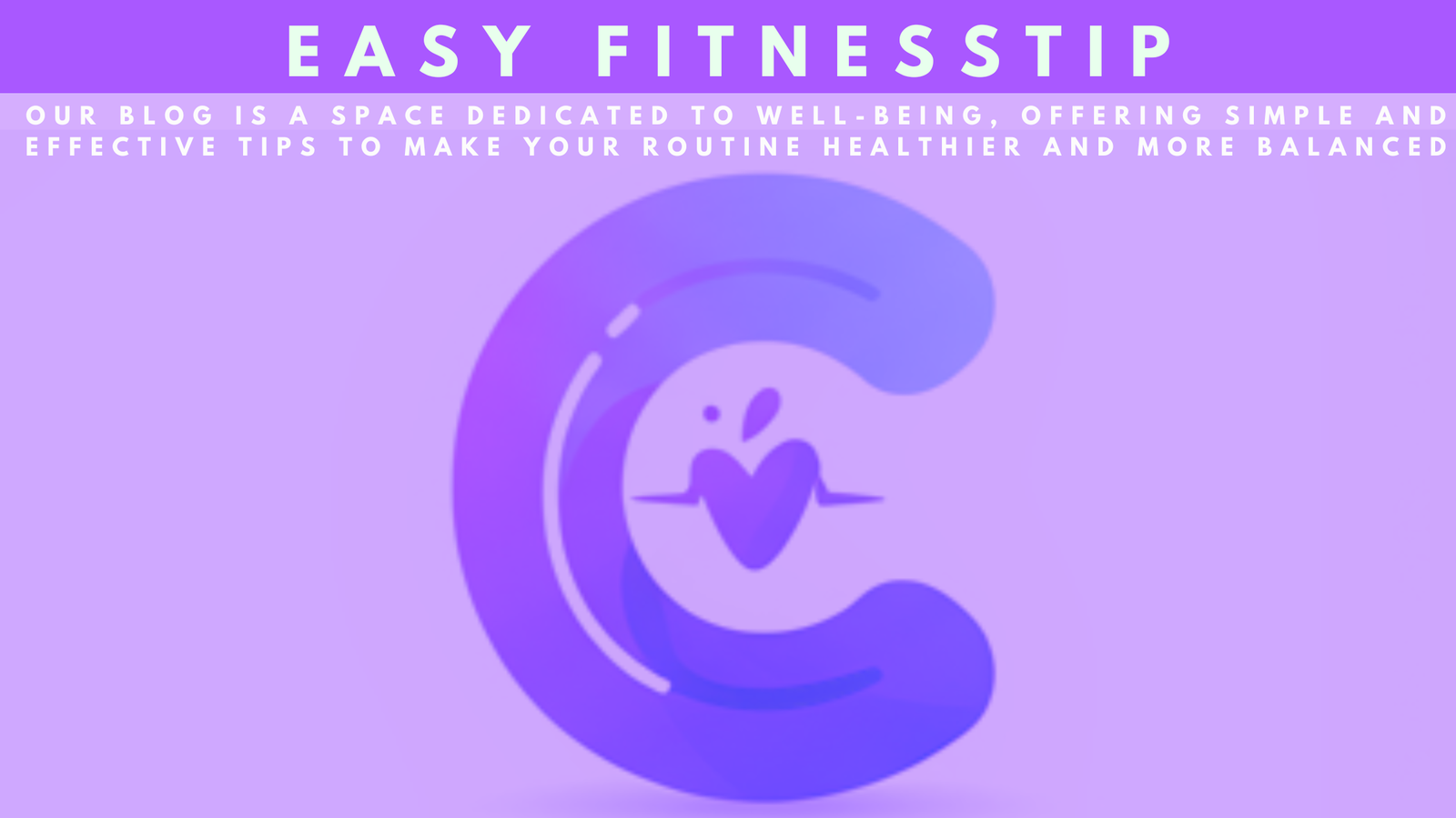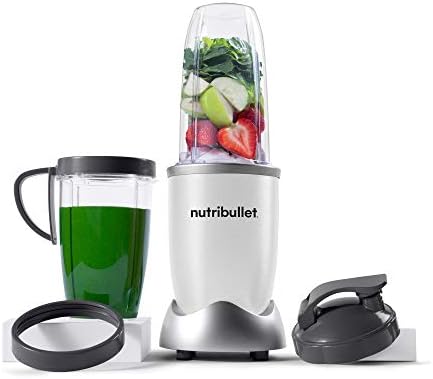
Achieving a stronger, more defined body involves not only intense workouts but also a strategic diet that favors muscle mass gain.
In the fitness world, nutrition plays a fundamental role—it’s the fuel that not only helps muscles recover but also supports their growth and improves exercise performance. In this article, we will explore the essential foods for hypertrophy, covering the indispensable nutrients, practical recipes, tips to avoid common diet mistakes, and strategies to sustainably maximize your results.
Introduction
A proper diet is the foundation for any training program aimed at muscle hypertrophy. Although workouts often take center stage, without a well-planned nutritional strategy, results can be limited. It is crucial to understand that what you eat directly influences your performance, muscle recovery, and hormonal balance. Combining macronutrients—proteins, carbohydrates, and fats—in a balanced way, along with essential micronutrients, enables your body to respond better to exercise stimuli and supports muscle growth.
This article details the key foods that should be part of the diet for those seeking hypertrophy, along with practical tips and recipes that can be incorporated into your daily routine. Whether you’re just starting your journey or looking to optimize your diet for more significant gains, this comprehensive guide will help you understand the pillars of effective fitness nutrition.
The Importance of Nutrition for Muscle Mass Gain
Muscle hypertrophy does not depend solely on physical stimulation but also on the availability of nutrients to rebuild and enlarge muscle fibers. During workouts—especially resistance and strength training—the muscle fibers experience microtears. It is through proper nutrition that the body finds the building blocks needed to repair this damage and promote growth.
Why Is Nutrition Essential?
- Muscle Recovery: After an intense workout, muscles need proteins and amino acids to repair and rebuild the damaged fibers. Without adequate intake, the recovery process can be compromised, limiting gains.
- Energy Supply: Carbohydrates are the primary source of energy during exercise. They ensure that your body has the necessary fuel to sustain intense and prolonged workouts, preventing premature fatigue.
- Hormonal Balance: Nutrients such as healthy fats are essential for the production of anabolic hormones like testosterone, which play a crucial role in muscle development.
- Injury Prevention: A balanced diet helps maintain a strong immune system and controls inflammation levels, reducing the risk of injuries and facilitating post-workout recovery.
Investing in nutrition is investing in more efficient results, better performance, and ultimately, a higher quality of life. The integration of training and nutrition is what makes harmonious and sustainable muscle development possible.
Essential Foods for Hypertrophy
To boost muscle mass gain, it is necessary to include foods that provide high-quality proteins, complex carbohydrates, and healthy fats. Below, we detail each group and explain how they act in the hypertrophy process.
High-Quality Proteins

Proteins are the fundamental building blocks for muscle construction. They are composed of amino acids, which are essential for repairing muscle fibers after a workout. To maximize benefits, it’s important to diversify protein sources by combining both animal and plant-based proteins.
Key Sources:
- Lean Meats: Chicken, turkey, lean beef, and fish such as salmon and tilapia are excellent protein sources with low fat content.
- Eggs: In addition to being rich in protein, eggs contain essential amino acids and vitamins important for metabolism.
- Legumes: Beans, lentils, chickpeas, and peas offer plant-based proteins as well as fiber, which aids digestion and maintains gut health.
- Dairy Products: Foods like milk, cottage cheese, and natural yogurt provide high biological value proteins and calcium, which is fundamental for bone health.
It is recommended that protein intake be spread throughout the day in all meals, ensuring that the body is constantly supplied with the amino acids necessary for protein synthesis.
Complex Carbohydrates
Carbohydrates are the body’s primary source of energy. In the context of intense workouts, they are responsible for replenishing muscle glycogen stores, allowing you to maintain performance during physical activity. For hypertrophy, the choice of carbohydrates is as important as the amount consumed.
Recommended Sources:
- Sweet Potatoes: Rich in complex carbohydrates, vitamins, and minerals, sweet potatoes are an excellent option to provide prolonged energy.
- Whole Grains: Brown rice, quinoa, oats, and barley are high in fiber and help maintain stable energy levels.
- Whole Wheat Pastas and Breads: These foods not only provide energy but also help with satiety and maintaining a balanced diet.
- Legumes and Vegetables: Although in smaller quantities, some vegetables also contribute carbohydrates and offer a wide range of essential micronutrients.
Carbohydrates should be consumed mainly before and after workouts to maximize energy availability during exercise and aid in post-workout recovery.

Healthy Fats
Although fats are often viewed with caution, they play a vital role in the diet of those seeking hypertrophy. Healthy fats are essential for hormone production, absorption of fat-soluble vitamins, and providing a constant energy supply.
Good Sources of Fats:
- Avocado: Rich in monounsaturated fats, avocado helps reduce inflammation and provides gradual energy.
- Nuts and Seeds: Walnuts, almonds, cashews, and chia seeds are great sources of healthy fats, in addition to offering fiber and protein.
- Olive Oil: One of the best oils for daily consumption, olive oil is rich in antioxidants and has anti-inflammatory properties.
- Fatty Fish: Salmon, sardines, and tuna contain omega-3 fatty acids, which help with muscle recovery and cardiovascular health.
Including healthy fats in your diet should be done moderately to ensure an ideal balance among macronutrients.
Practical Recipes and Tips for Incorporating These Foods
Incorporating foods rich in proteins, complex carbohydrates, and healthy fats into your routine can be challenging when you’re starting out. Here are some practical tips and recipes to simplify the process:
Energizing Breakfast
Protein Smoothie with Fruit and Oats
Ingredients:
- 1 ripe banana
- 1 tablespoon of oats
- 1 cup of milk or plant-based alternative (almond milk, for example)
- 1 scoop of protein powder (whey or plant-based protein)
- 1 teaspoon of honey (optional)
- Ice to taste
Preparation:
- Blend all ingredients until smooth.
- Serve immediately to enjoy a breakfast rich in protein and carbohydrates that fuels your workout.
This recipe is ideal to start the day with energy and promote muscle recovery right in the early morning hours.
Pre-Workout Snack
Chicken Sandwich with Whole Wheat Bread and Avocado
Ingredients:
- 2 slices of whole wheat bread
- 100g of grilled and shredded chicken breast
- 2 slices of avocado
- Lettuce leaves and sliced tomato
- Seasonings to taste (pepper, lemon, herbs)
Preparation:
- Assemble the sandwich by placing the chicken, avocado, lettuce, and tomato between the bread slices.
- Season to taste and serve 30 to 60 minutes before your workout to ensure energy and satiety.
This snack offers a perfect combination of proteins and healthy fats, ideal for maintaining high energy levels during physical activity.

Post-Workout Dinner
Complete Meal: Grilled Salmon with Quinoa and Vegetables
Ingredients:
- 1 salmon fillet (150-200g)
- 1 cup of cooked quinoa
- A mix of vegetables (broccoli, carrots, and zucchini) lightly sautéed
- Olive oil, salt, and pepper to taste
- Parsley for garnish
Preparation:
- Season the salmon fillet with salt, pepper, and a drizzle of olive oil, then grill over medium heat until golden.
- Prepare the quinoa as per the package instructions.
- In a skillet, lightly sauté the vegetables with a little olive oil until tender, keeping a slight crunch.
- Plate the salmon, quinoa, and vegetables. Garnish with chopped parsley.
This dinner is ideal to replenish energy and provide the essential nutrients for muscle repair after an intense workout.
Common Diet Mistakes in Fitness Nutrition
Even with the best intentions, many fitness enthusiasts make mistakes in their diet that can compromise results. Knowing these pitfalls is the first step to avoiding them and optimizing muscle gains.
Insufficient Protein Intake
Many beginners underestimate the importance of maintaining an adequate protein intake. Skipping meals or consuming low-quality protein sources can hinder recovery and muscle growth. It is essential to distribute protein intake evenly throughout the day to ensure that your body is consistently supplied with the necessary amino acids.
Overindulgence in Simple Carbohydrates
Foods high in refined sugars and simple carbohydrates can cause spikes in blood sugar and insulin, leading to unwanted fat accumulation. Always opt for complex carbohydrates, which provide sustained energy without compromising body composition.
Ignoring Healthy Fats
Many individuals avoid fats for fear of gaining weight. However, eliminating healthy fats from the diet can impair hormone production and the absorption of essential vitamins. Moderation is key to ensuring your body receives all the nutrients it needs to function optimally.
Lack of Meal Planning
Improvising meals can lead to poor choices and consumption of processed foods. A well-planned diet, with weekly menus and meal prepping, helps ensure that your nutrition is balanced and consistent.
Overlooking Hydration
Water is an essential nutrient that is often neglected. Dehydration can reduce performance during workouts and compromise muscle recovery. Make it a habit to drink water throughout the day, especially before, during, and after exercise.
Strategies to Enhance Your Fitness Diet
Beyond choosing the right foods, adopting strategies that help maintain discipline and consistency in your diet is crucial. Here are some practical tips:
Meal Planning
Set aside time at the beginning of the week to plan your menus. This includes defining main meals and snacks, as well as preparing portions in advance. Good planning reduces the likelihood of impulsive choices and ensures that all nutrients are well balanced.
Food Journal
Keeping a food diary can be a valuable tool to track your macronutrient and micronutrient intake. Many apps can help you record your meals, identify areas for improvement, and maintain discipline with your diet.
Nutritional Consultation
For those pursuing specific results or having individual needs, working with a nutritionist specializing in sports nutrition can be an excellent strategy. A professional can tailor your diet according to your profile and goals, ensuring a personalized approach.
Variety and Flavor
A balanced diet does not have to be bland. Experiment with new recipes, combine different foods, and explore natural seasonings. A variety of flavors helps maintain the pleasure of eating well, avoiding monotony, and increasing adherence to the diet.
Portion Control
Learning to measure and adjust portions according to your caloric expenditure and personal goals is essential. If needed, consult a professional to define the ideal amount of each macronutrient so that your diet meets your body’s demands.
Conclusion and Final Recommendations
Fitness nutrition is a key component for anyone aiming to achieve muscle hypertrophy and enhance athletic performance. By prioritizing foods rich in proteins, complex carbohydrates, and healthy fats, you supply your body with the essential nutrients for muscle recovery and growth. Additionally, practices such as meal planning, food journaling, and professional nutritional guidance can make a significant difference in obtaining consistent and lasting results.
Remember, every body is unique, and what works for one person may not be ideal for another. It’s important to listen to your body and adjust your diet to your individual needs. By investing in a strategic, balanced diet, you not only boost muscle gains but also improve overall health and quality of life.
Incorporate the recipes and tips presented in this article into your routine, experiment with new combinations, and stay focused on your goals. The journey to muscle hypertrophy is continuous—it requires discipline, patience, and, above all, a well-planned diet. With dedication and the right strategies, results will naturally follow, enhancing both your workouts and your everyday life.
Now that you understand the importance of nutrition in building muscle, why not put these tips into practice? Adapt your meals, try the suggested recipes, and watch your body and performance transform. Remember: success in the gym starts in the kitchen!
References
- Healthline – Information on nutrition for muscle gain and recovery. Available at: https://www.healthline.com/nutrition/
- Bodybuilding.com – Guide to nutrition for hypertrophy and fitness recipes. Available at: https://www.bodybuilding.com/
- Dietary guidelines and recommendations for healthy eating. Available at: https://www.gov.br/saude/pt-br
- Revista Corpo a Corpo – Articles on sports nutrition and fitness recipe tips. Available at: https://www.corpoacorp.com/
This article aimed to comprehensively cover the essential aspects of fitness nutrition focused on muscle mass gain. With a clear structure and actionable advice, we hope the information provided helps you achieve your goals more efficiently. Stay focused, follow these tips, and see your performance improve both in your workouts and daily life.









